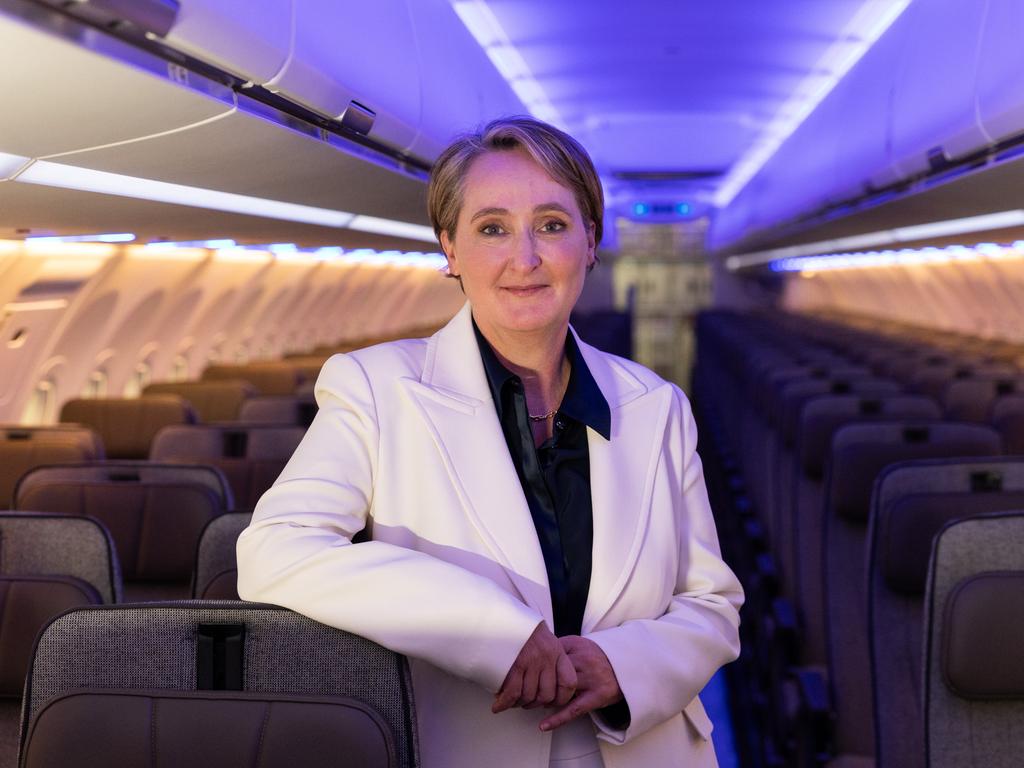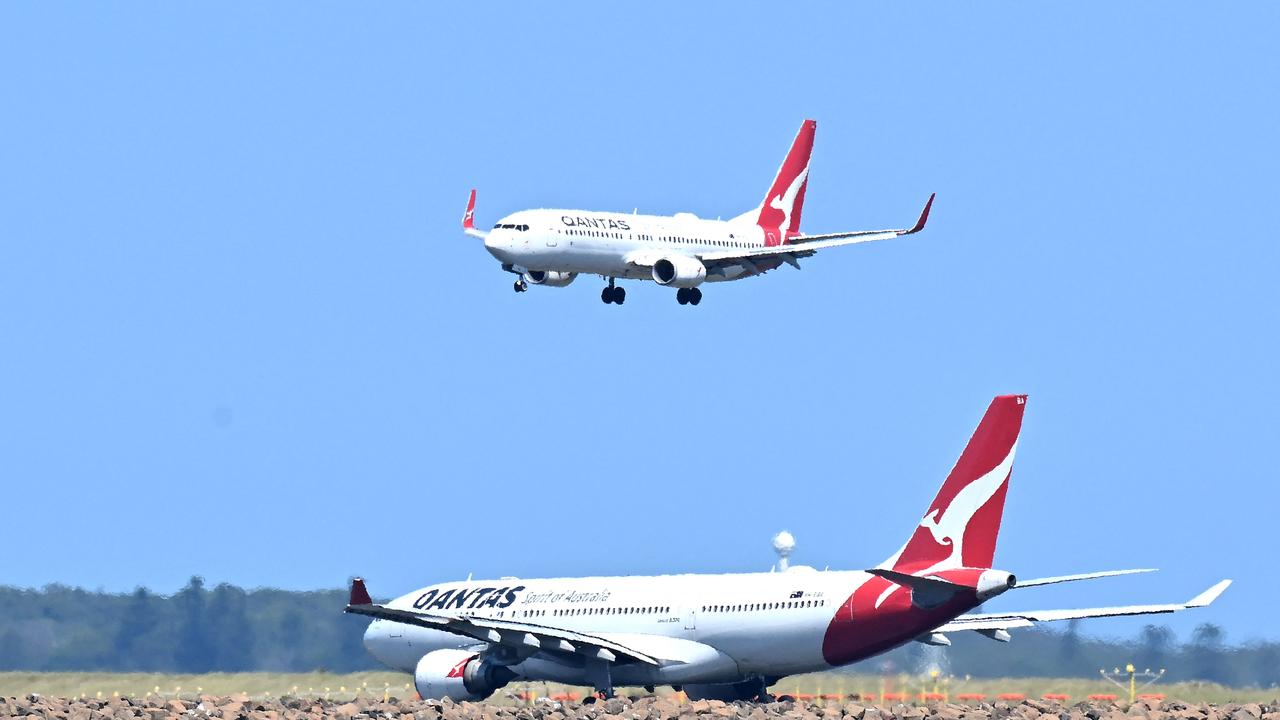Qantas and Jetstar in top 10 airline brand rankings according to Brand Finance report
After years of decline, Qantas’ brand is on the rise with the carrier returning to the top ten ‘strongest airline brands’ globally thanks to a $1.3bn boost to its reputation.
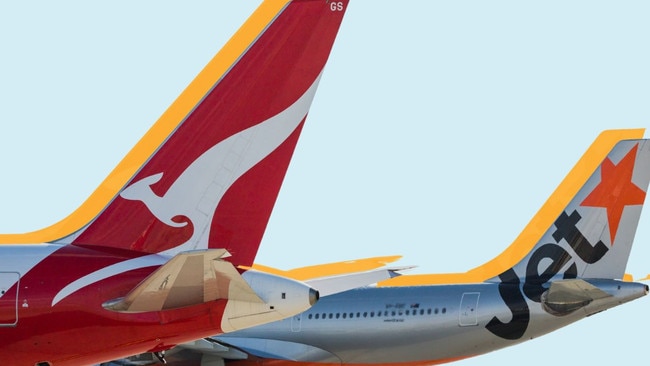
Business
Don't miss out on the headlines from Business. Followed categories will be added to My News.
Increased spending on customers, demand for premium travel and a refreshed board and executive team have helped Qantas boost its brand value by $1.3bn in the past year, according to an annual analysis of airlines’ brand strength and worth.
In a major turnaround, Qantas moved up five places to 16th in the annual Brand Finance airlines’ report, thanks to a 46 per cent leap in brand value to $4.1bn ($US2.6bn) – its best result since 2019.
An improved performance in the areas of “assurance and appeal” helped lift Qantas’s ranking along with high marks for “familiarity and choice”.
Qantas also returned to the top 10 “strongest” full-service carrier brands, coming in at ninth, after tumbling out of the list last year for the first time in six years.
At the same time budget partner Jetstar made its top 50 debut at 43 with a brand value of $1.2bn; and ranked sixth among the strongest low-cost carrier brands.
Brand Finance Australia managing director Mark Crowe said the results reflected the buoyancy of the airline market globally, with total brand value jumping 29 per cent off the back of strong demand for premium travel and connectivity.
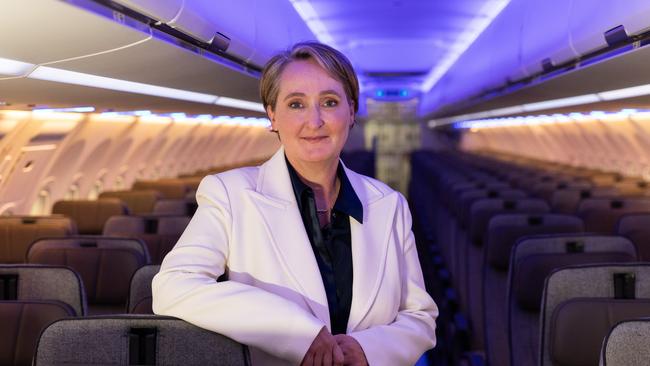
Mr Crowe said Qantas had also benefited from the focus on customers under chief executive Vanessa Hudson and key changes in the board and executive team.
But there was still some way to go to repair the brand damage inflicted by the “corporate bully” reputation associated with former CEO Alan Joyce and poor customer service in the post-Covid period.
Mr Crowe said that had not necessarily hurt Qantas’s revenue base but it had diminished Qantas’s influence in terms of shaping airline policy in Australia. “That is reflected in the Qatar Airways’ decision and that can also in the long run place further cost pressures on Qantas in terms of losing what may’ve previously been a more dominant place in the market,” he said.
“Their influence has been diminished but to the extent they can turn it around through improving reputation and specifically getting the brand back to where it was seen very much as an iconic brand with a very rich heritage.”
In a recent interview with The Australian, Ms Hudson acknowledged there was still work to do to restore Qantas’ former standing among travellers. She said as long as she was CEO, Qantas would “never be complacent or feel entitled to customer loyalty”.
“We have got to constantly listen to customers, and understand where their pain points are,” she said.
“There are always going to be things that don’t go to plan, or are not what customers want and having a mindset and a culture of listening to our people who spend more time with customers, we will never stop on that journey.”
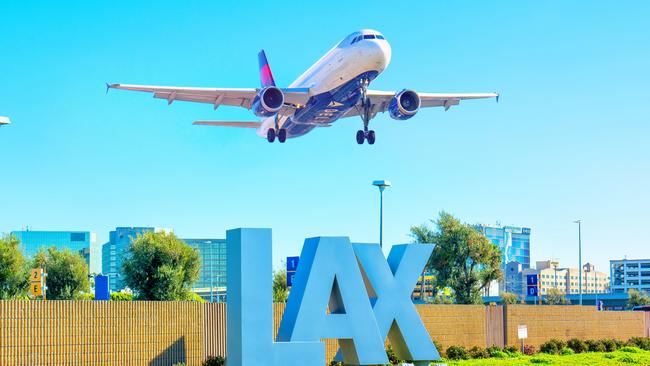
Major US airlines Delta, United and American were rated as the world’s most valuable carrier brands largely due to their size and financial strength, with Emirates fourth. Qatar Airways was eighth overall with a brand value of $6bn, which the report attributed to its “modern fleet, award-winning service and network growth”.
Mr Crowe said Virgin Australia did not feature in the top 50 most valuable airline brands due to the fact it did not have dominance in any particular market, which made the partnership with Qatar Airways all the more important.
“Certainly on Qatar the decision to allow more flights will be an interesting watch,” he said.
Brand Finance senior director Savio D’Souza said that globally the lift in airlines’ total brand value to $209.4bn ($US132.4bn), was driven by shifting consumer preferences.
“Premium and loyalty revenue streams now account for over half of total income at leading carriers like Delta,” he said.
“As demand accelerates for high-quality, long-haul travel experiences, brands that deliver reliability and service excellence are pulling ahead of the competition.”
The momentum was not without “potential challenges” he warned, highlighting the headwinds posed by new tariffs and delayed jet deliveries.
“Such economic uncertainty could dampen airlines’ expansion plans and brand growth,” he said.
“The months ahead will be a test of how airline brands balance ambition and resilience.”
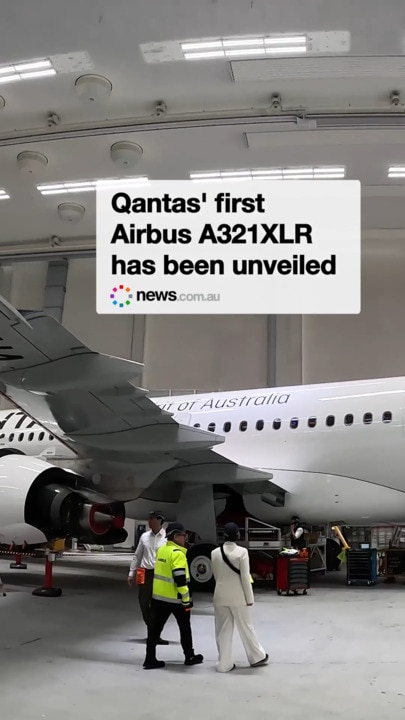
The report also assessed the brand value of international airports, ranking London Heathrow first, ahead of Singapore Changi and Paris Aeroport (Charles de Gaulle).
Sydney Airport scraped into the top 25 at 23, with a brand value of $262m, up 10.5 per cent on last year.
“We’re delighted to again be recognised as a leading global airport from a brand perspective, which reflects our ongoing focus on efficiency, service and continually improving the experience for our passengers,” said a Sydney Airport spokesman of the ranking.
Brand Finance chief executive David Haigh said strong brands stood as key drivers of business success, and allowed organisations to differentiate themselves, attract loyal customers and build resilience.
“A well-managed brand delivers measurable value beyond customer attraction and retention – it enhances talent acquisition, investor confidence, and organisational agility,” he said.
“In today’s marketplace, a strong brand is not just an asset but a strategic imperative.”
Qantas rose 5c to $8.52.
More Coverage
Originally published as Qantas and Jetstar in top 10 airline brand rankings according to Brand Finance report



